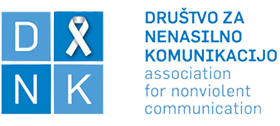
When victims are not heard or are ignored in their distress, it is much less likely that it will not be taken care of their safety. In such cases, it is good to have the possibility of social advocacy.
Qualified counsellors of the Association perform social advocacy. They encourage clients to advocate for their rights and to collect as much information as possible. This gives them a feeling of power and control over the situation. When clients are unable to do it, a counsellor can help them.
When a counsellor provides social advocacy in cases of violence, she:
- Cooperates with centres for social work, schools, kindergartens, safe houses, maternity homes, crisis centres, retirement homes and other organizations.
- Informs centres for social work, schools, kindergartens, retirement homes, children homes and other organizations about specifics of situations involving violence. A counsellor presents a problem from the point of view of violence and encourages them not to ignore violence in procedures.
- Helps organizing a move from home to a safe accommodation when a victim cannot do it herself for different reasons (isolation, lack of information, age, immobility, illness, remoteness …) but wants to.
- Arranges oral hearings and other proceedings in a way that facilitates the involvement for the victim.
- Accompanies a victim to other organizations, to oral hearings and crisis teams.
- Helps a victim to gain legal information and organizes legal advocacy when clients are unable to do it for different reasons.
- Reports violence to centres for social work or to the police and gives written or verbal initiatives to centres for social work, prosecutor’s offices, and courts of justice to organize crisis teams, to accelerate the procedures or to study additional information.
- Writes and helps writing complaints about the minutes if there are neglected or incorrectly taken standpoints or words of a victim.
- Writes and helps writing complaints about the treatment of professional workers when working with victims.
- Warns ministries, human rights ombudsman and others about system deficiencies when solving a certain case of violence.






